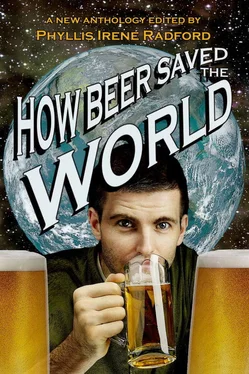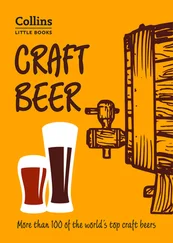(8) An English phrase roughly translated into German as, ‘ach du Lieber Himmel!’
(9) Subsequent research has confirmed that the village of Durn, the kingdom of Schkerrinwald, and the Vorkenfast Empire are certainly quite gone, and apparently unheard of by anyone other than Mr. Dourmundtschtradel.
(10) This assertion is disputed by some scholars.
(11) As is this one.
(12) And this one.
(13) This assertion is both verifiable and undisputed.
(14) In conversation with Mr. Dourtmundschtradel after the recording of this interview, the interviewer learned that the ‘brown feather’ referred to was on display in Stephenson’s so-called throne room, where he made loud and frequent claims that it had been plucked by his father from the tail of a phoenix, and thus somehow proved his divine right to rule—though, to virtually all others, Dourtmundschtradel asserts, it looked an awful lot like the feather of a common owl.
(15) This policy might go a long way toward explaining the dearth of any reference to Lord Augustus Stephenson or Durn Valley in the known historical record.
(16) If not apocryphal, this detail places the origins of Mr. Dourtmundschtradel’s tale sometime after the introduction of Christianity to Europe, and thus well after The Age of Rather Long Stories—not to mention the first known invention of beer—casting potential doubt upon the rest of his tale, though Durn may conceivably have been the cradle of modern beer for that part of Europe—whatever part of Europe that was, exactly.
(17) The practice described here was actually fairly common in medieval Europe, often referred to in official documents as ‘managing the tax base.’
(18) As Mr. Dourtmundschtradel attributes his tale to The Age of Rather Long Stories, a period by definition outside the historical record, it is impossible to ask, much less determine, whether the historical record corroborates or contests his claim that no one else had made or heard of beer prior to its creation in Durn. (See footnote 16.)
(19) Mr. Dourtmundschtradel’s description of the process by which this particular mixture came into being engenders some doubt as to whether the ‘beer’ described bore much if any resemblance to the modern libation so named.
(20) A sound assumption, even under scrutiny by modern investigative methods.
(21) Again: a claim impossible to test from any tale attributed to The Age of Very Long Stories, etc.
(22) More rigorous analysis places this figure closer to 14.6 billion happy endings to date, though this result must be balanced against an estimated 9.375 billion unhappy endings to date. Individual results may vary.
(23) This practice too was fairly common in medieval Europe, commonly referred to as ‘information management.’
(24)This strategy has been a staple of good governance in nearly every empire known to history, though means have varied widely from vodka in Russia and gin in Britain, to opium in China and the Middle East, to marijuana, chocolate Ding Dongs, cheeseburgers, television, and, of course, handheld video games in the US.
(25) Given the situation described in Durn, it does seem plausible that Gundar might have gone to such trouble in transporting his harvest to Mad Gus’s granaries, desperate not to leave Gus’s men any excuse to visit him at home and perhaps burn down the place while they were there.
(26) There were no laws at this time forbidding minors to serve or sell alcohol.
(27) There were, of course, antacids in those days. They just hadn’t been discovered yet.
(28) A standard lager of medieval vintage would likely have weighed in at 4.7% alcohol.
(29) This passing reference may be even more startling than Dourtmundschtradel’s assertion that beer was invented in Durn—as potatoes are not thought to have been introduced to Europe from the New World until sometime around 1500AD. This apparent anachronism now has some scholars speculating that if Durn Valley was the lowly potato’s actual cradle, and some of the tubers made their way to Scandinavia, (which could not have been far away given the naming conventions prevalent throughout this narrative), they might well have been transported from there to North America by seafaring Nordic explorers, whom we now know visited the New World many centuries before Columbus did, where they could have flourished and spread, only to be rediscovered and brought back to Europe centuries later just in time to catalyze Ireland’s great potato blight! How ironic would that be?
(30) A standard pale ale of the time would be estimated at approximately 5.2%.
(31) A hearty oatmeal stout of the time, estimated close to 6.4%, though batches doubtless varied widely.
(32) Quality late-season porter of the day: 8.9% at very least.
(33) By this point in the narrative, any wary historian will likely have begun to question such an extraordinary volume of detailed dialogue woven through an account ostensibly one or more millennia old. It does seem that some degree of apocryphal embellishment may reasonably be posited.
(34) As any competent linguist will confirm, to translate a sneeze into German requires at least two paragraphs of text. German words and syntax are renowned for their length and complexity. Apparently, Mr. Dourtmundschtradel finds American linguistic minimalisms equally absurd.
(35) Alas for Gundar’s considerable effort to avoid just this kind of attention.
(36) Colloquial expletive.
(37) Recall that villagers were permitted to forgo surrendering their grain to Mad Gus if it was surrendered instead to one of Durn’s many beer distillers for immediate brewing.
(38) German phrase roughly translated into English as ‘Holy cow!’ More literally as ‘God in heaven!’
(39) Most beer scholars agree that the real issue being skirted here by this exclusively male group is that most early brewers of beer were female (known as brewsters). The abduction of so many village women may have been a much bigger impediment to new emergency brewing than the late season or sequestered grain harvest.
(40) An intriguing interjection for two reasons. First, such concepts of clinical psychosis would not appear in the rest of Europe until around the 19th century with the work and writing of Sigmund Freud. (Was he too, perhaps, descended of the Durn Valley?) Secondly, the speaker here makes this accusation of psychosis even as he and his companions exhibit such clear symptoms of full blown cenosillicaphobia, (fear of an empty beer glass.)
(41) Another colloquial expletive.
(42) Deft sidestep by a consummate professional who, with all deference to German sentiments about displays of sentiment, clearly understands the value of uncensored authenticity in oral history. Our respectful apologies to the late Mr. Dourtmundschtradel, and any surviving family members.
(43) German term for ‘thank you,’ not to be confused with ‘dunken’ which pertains in Germany, as in America, primarily to warm, soft, mouthwatering, God-I-wish-I-had-one-right-now, donuts.
(44) Some scholars theorize that men and dogs were brought into partnership in ancient times by the fact that they smelled much the same when wet. Further research suggests that when dry, ancient men smelled worse, but this was likely no deterrent for dogs, who, as any layman knows, are only too glad to shove their noses into any heap of dung they pass.
(45) This detail too, if not apocryphal, suggest the tale’s origin must be much later than Mr. D has indicated.
(46) This reference continues to confuse historians as it seems to suggest carrying sausage in one’s pants was common practice at this time—an assertion supported by no other known medieval reference, and made all the more mysterious in light of the fact that the men in question here have made it clear they possess no food at all.
Читать дальше











